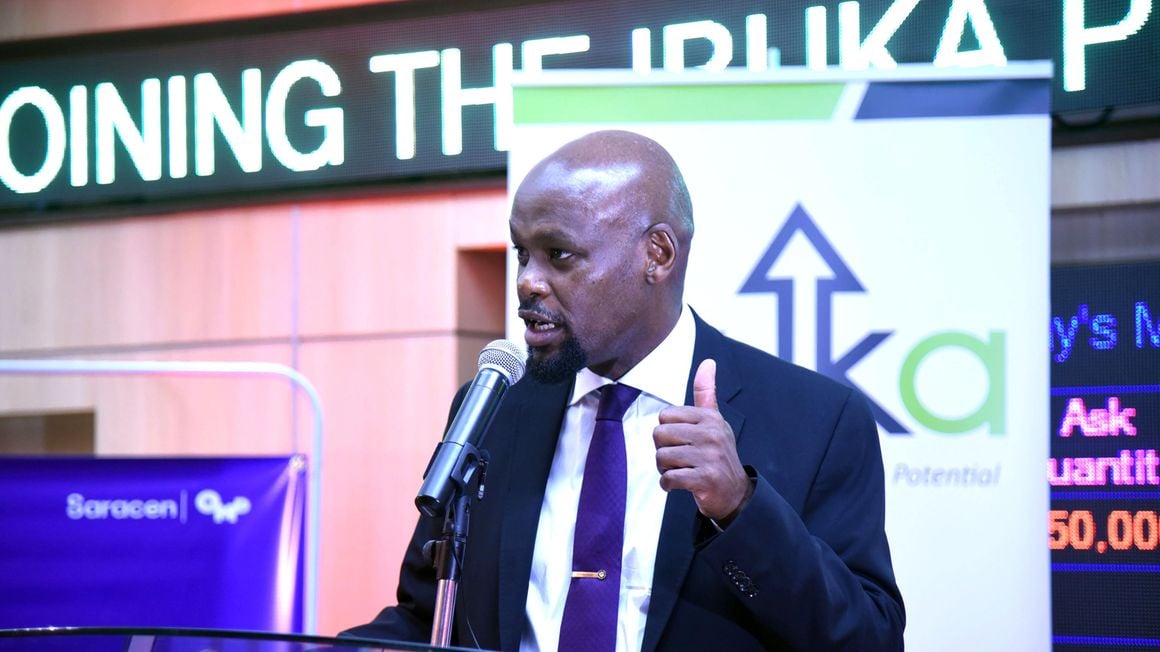
Saracen Media OMD chairman Nani Mungai during an Ibuka hosting ceremony in the past. FILE PHOTO | NMG
The Nairobi Securities Exchange (NSE) incubator programme, Ibuka has struggled to
revive listings on the bourse more than five years since launching in December 2018.Of the more than 30 firms enrolled on the incubator platform, only Homeboyz Entertainment Limited has graduated—listing on the bourse by introduction in December 2020. This type of listing occurs when a company takes its existing issued shares and lists them on an exchange.
Some firms on the Ibuka platform have recently run into headwinds turning the would-be new listings into ongoing concerns.
Last June, for instance, the High Court ordered the liquidation of the Tuskys Supermarket chain, ending a 30-year-long journey for the family-owned firm after the retailer racked up Sh20 billion in arrears to creditors, including banks and suppliers.
The supermarket was hosted by the NSE Ibuka incubator and served more than 10 million customers monthly at its peak with a footprint of over 63 retail stores in Kenya and Uganda, according to the retailer’s disclosures.
Read: Saracen to seek listing via bourse incubator
Most recently, Vehicle and Equipment Leasing Limited (Vaell) was placed under administration after defaulting on creditors’ obligations to the tune of Sh1.1 billion.
Vaell, another Ibuka listee, describes itself as the market leader in asset leasing, maintenance, and consulting in eastern and central Africa.
In 2019, both Vaell and Tuskys had been widely expected to break the listings duck by listing on NSE’s main bourse. Other members of the Ibuka platform include Unity Homes, Ashleys Kenya Limited, RFH Healthcare, AA Kenya, Mookh Africa, and Safaricom Investment Cooperative.
“Through the various stages, the programme is designed to prepare companies to raise capital and be investor-ready through various capital market options available at the NSE Plc,” notes the NSE.
The NSE lists the benefits of the Ibuka programme as capital markets access, visibility, expert advisory, business sustainability, and value discovery.
Factors outside of the incubator however may have influenced the limited graduation of hostees into listings including the depressed macroeconomic environment which has been recently characterized by foreign portfolio outflows and higher returns on government securities.
“Two of our main sources of capital are not there. We are relying on a few retail investors and that has led to price devaluation over time. That valuation has been unattractive for investors to come in,” NSE CEO Geoffrey Odundo said in a previous interview.
Read: Optiven eyes equity funding to cut debt on Ibuka debut
Companies on Ibuka first join the Incubator Board where they undergo an in-depth valuation and analysis that focuses on various aspects of the enterprise including growth drivers, internal strengths and weaknesses, opportunities and threats.
The final stage of the program known as the Accelerator Board advises hostees on available capital-raising opportunities provided by the NSE.
→ kmuiruri@ke.nationmedia.com




No comments :
Post a Comment